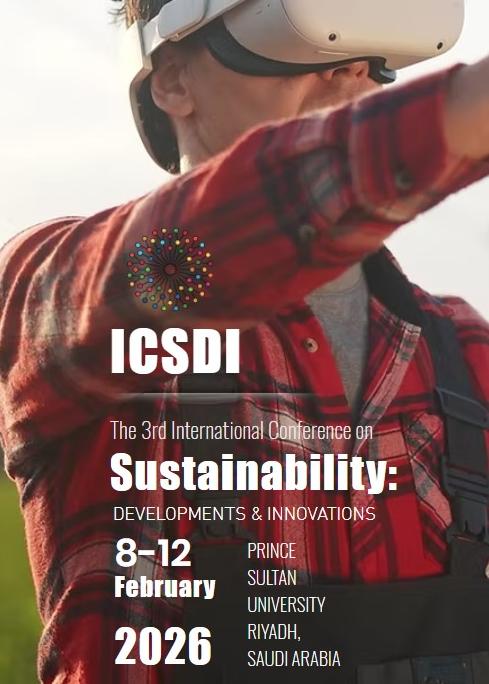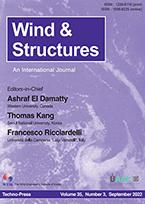31st PARIS International Conference on Sustainable Agriculture & Plant Protection (PSAPP-25) scheduled on Dec. 3-5, 2025 Paris (France)
31st PARIS International Conference on Sustainable
- URL: https://earcee.eares.org/conference/301
- Event Date: 2025-12-03 ~ 2025-12-05
- Submission Date: 2025-11-21
- Organizer: EARCEE
- Location: Paris, France
Cell Biology Microbiology Molecular Biology Plant Pathology Soil Sciences Sustainable Development Sustainable Energy Biodiversity & Conservation Biology Biotechnology Sustainable Development
Call for papers/Topics
Topics of interest for submission include any topics related to:
I. Sustainable Agricultural Systems & Practices
- Agroecology and Regenerative Agriculture:
- Principles and practices of agroecology
- Soil health and fertility management (e.g., cover cropping, no-till, organic matter enhancement)
- Biodiversity in agricultural landscapes (e.g., beneficial insects, wildlife corridors)
- Carbon sequestration in agricultural systems
- Circular bioeconomy in agro-farming
- Nature-based solutions in agriculture
- Climate Change Adaptation and Mitigation:
- Climate-smart agriculture techniques
- Drought-resistant crop varieties and water-efficient irrigation
- Climate-adaptive livestock management
- Impacts of climate change on plant health and pest dynamics
- Resilient livelihood strategies for farmers
- Early warning systems for weather and pests
- Sustainable Resource Management:
- Sustainable soil and water management
- Water quality management in agricultural runoff
- Nutrient cycling and efficient fertilizer use
- Renewable energy integration on farms
- Waste management and valorization in agriculture
- Crop and Livestock Production Systems:
- Crop rotation and diversification
- Precision agriculture (sensors, robotics, AI)
- Vertical farming, hydroponics, and aquaponics
- Horticulture and protected cultivation
- Sustainable livestock grazing management
- Integration of crop and livestock systems
- Socio-economic Aspects of Sustainable Agriculture:
- Food security and food systems
- Rural development and community engagement
- Economic viability of sustainable practices
- Policy and regulatory frameworks for sustainable agriculture
- Farmer education and extension services
- Marketing and supply chain for sustainable products
- Integrating traditional ecological knowledge
II. Plant Protection Strategies & Innovations
- Integrated Pest Management (IPM):
- Principles and implementation of IPM
- Monitoring and forecasting of pests and diseases
- Decision-making tools for pest management
- Cultural practices for pest control
- Biological control (biopesticides, beneficial organisms, macrobials, microbials)
- Host plant resistance and breeding for disease/pest resistance
- Chemical control (responsible use, reduced-risk pesticides, resistance management)
- Pest and Disease Diagnostics & Monitoring:
- Advanced diagnostic tools for pathogens and pests
- Molecular mechanisms of plant-microbe interactions
- Remote sensing for crop disease surveillance
- AI-based pest and disease detection
- Population genetics of pests and pathogens
- Specific Pest Groups:
- Insect pest management (e.g., migratory pests, biosecurity)
- Plant diseases (fungal, bacterial, viral, phytoplasma, nematodes, abiotic diseases)
- Weeds and their management (e.g., alien invasive weeds, weedicide resistance)
- Post-harvest pests and diseases
- Invasive and emerging pests under changing climate
- Biotechnology and Advanced Technologies in Plant Protection:
- Genomics and gene editing for plant protection
- Endophytes and plant protection
- Bio-based compounds and plant immunity
- Nanotechnology in plant protection
- Drone and robotics for pest management
- Digital tools and ICT in plant protection
- Phytosanitary Measures and Global Trade:
- Quarantine procedures and control of transboundary pests
- International phytosanitary standards
- Risk assessment for invasive pests
- Impact of safe trade on plant health
- Environmental Impact of Plant Protection:
- Ecotoxicology and toxicology of pesticides
- Impact of agrochemicals on soil and water health
- Reducing the ecological footprint of plant protection
- Pollinator protection and biodiversity conservation
III. Cross-Cutting Themes
- One Health Approach: Recognizing the interconnectedness of human, animal, and environmental health in plant protection.
- Policy and Regulation:
- Implementation of national and international strategies (e.g., EU Farm to Fork Strategy)
- Pesticide regulation and risk assessment
- Incentives for sustainable farming practices
- Research and Development:
- Funding and collaborations in plant protection and sustainable agriculture research
- Translational research from lab to farm
- Technology transfer and innovation adoption
- Education and Capacity Building:
- Training programs for farmers, researchers, and extension workers
- Public awareness and engagement on sustainable agriculture and plant health














